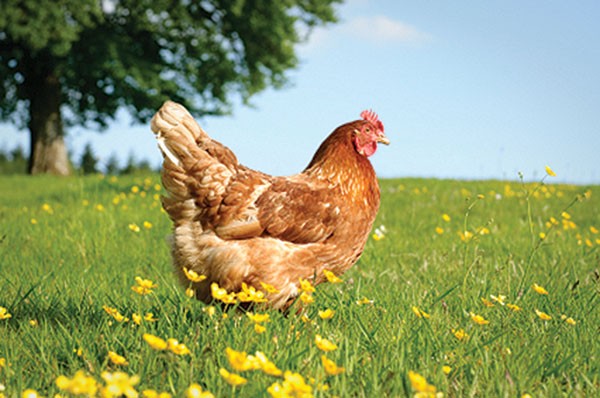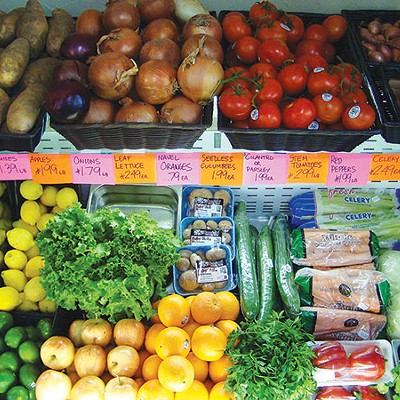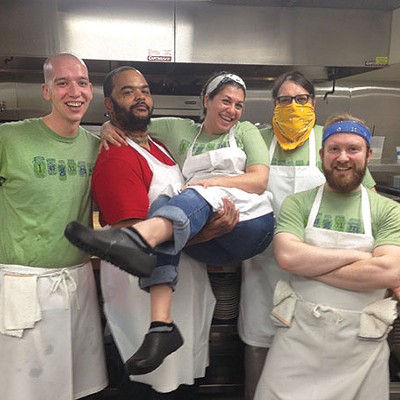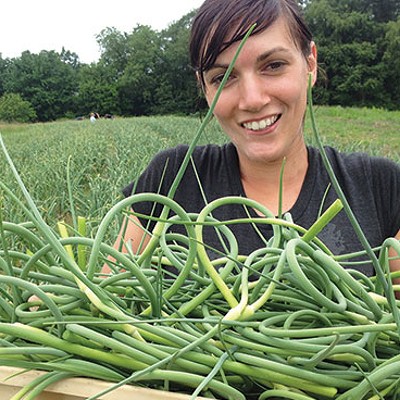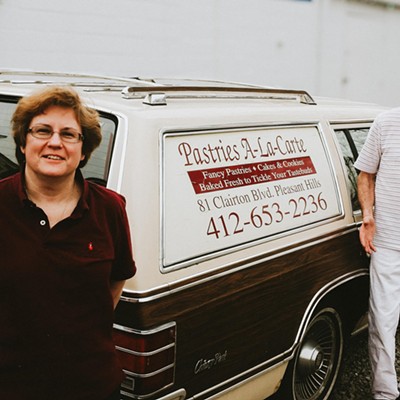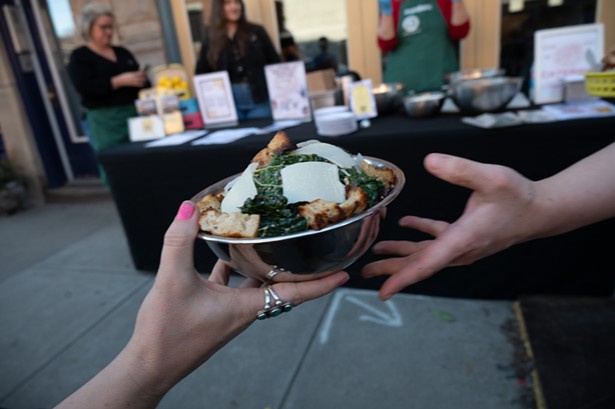Like many "foodie" issues these days, raising urban chickens can ruffle some feathers.
As the urban homesteading movement has taken hold, there have been national headlines about chickens being orphaned at the nation's animal shelters. "Hipsters" have been accused of growing weary of their flocks, or being naïve about a hen's egg-laying capacity. (Chickens can live between eight and 15 years, but frequently pass their egg-laying prime long before that.)
Local shelters are seeing similar problems. Janice Barnard, program director for the Animal Rescue League, has seen a notable increase in her chicken population this year. After the city passed an Urban Agricultural zoning ordinance, the Animal Rescue League took in roughly 13 to 15 chickens annually. But so far this year, Barnard says, the number of chickens brought in has more than tripled, to 47.
Over at the Western Pennsylvania Humane Society, spokesperson Gretchen Fieser confirms "a tremendous increase" in the number of chickens relinquished. "We're not set up for that."
Various factors may lie behind giving a chicken up: complaints from neighbors, zoning issues, financial hardship. Those who hope to raise their brood from chicks face a special challenge: determining a chick's sex. Backyard Poultry magazine estimates that any method of identifying a chick's sex is 50-50, meaning you risk antagonizing your neighbors by accidentally bringing home a dawn-crowing rooster.
Jana Thompson, whose group Pittsburgh Pro-Poultry People supports urban chicken-keeping, has a blunt view of the matter: "For any sort of 'problem' to develop with unwanted poultry is preposterous. The reasonable end of any farm animal is to be [humanely slaughtered and] eaten.
"If you don't want your animal to be eaten," Thompson adds, "you're unfair in asking others to pay for the privilege of your choice."
That view isn't embraced by everyone, but shelters and urban-agriculture advocates do agree on one thing: Would-be chicken owners should do their research, and think through the chicken's entire lifespan, before bringing home a bird. Groups like P4 and the Uniontown Poultry Association offer help navigating the pastures of urban homesteading.
And Barnard has another piece of advice: "Talk to your neighbors before you bring home chickens."

